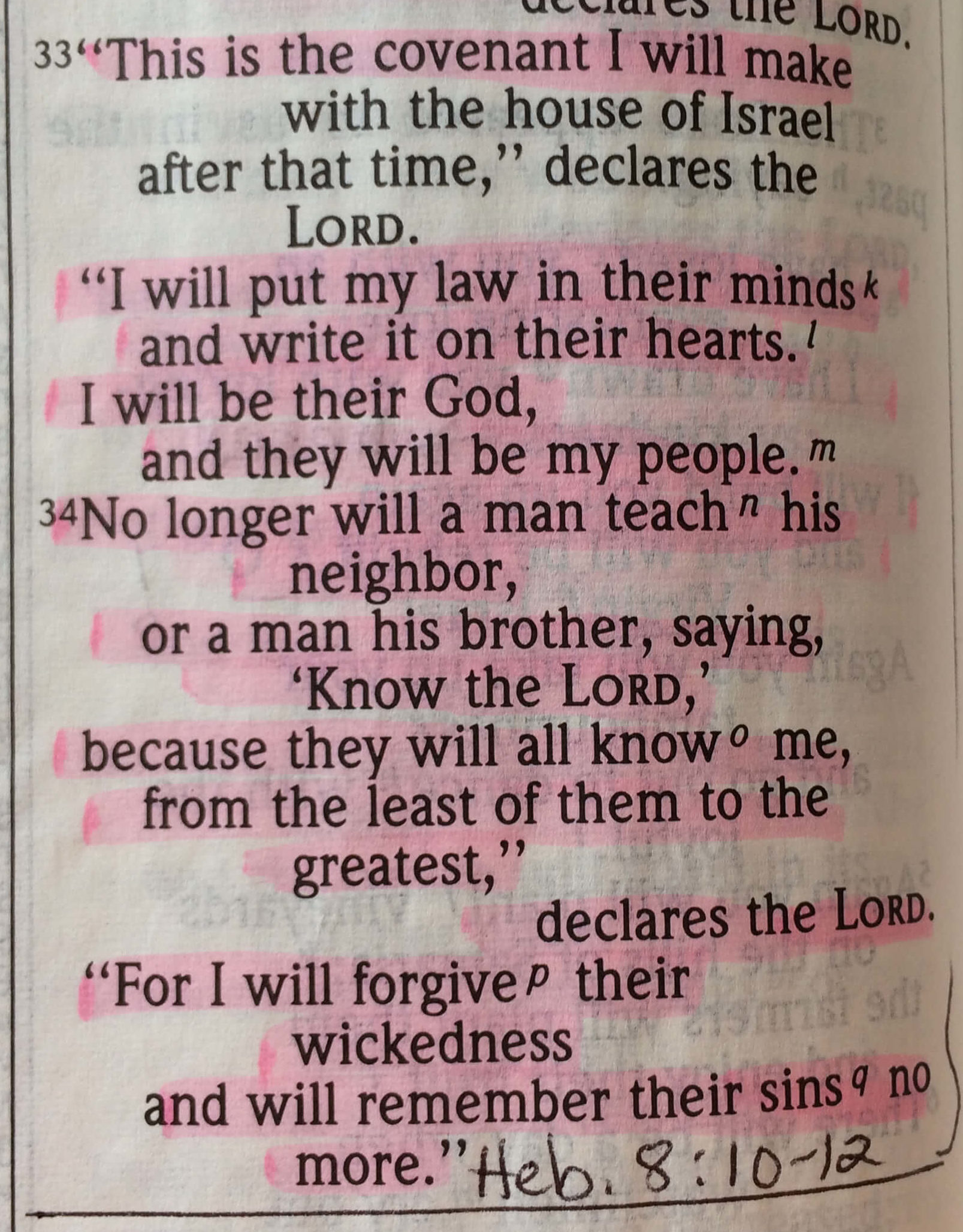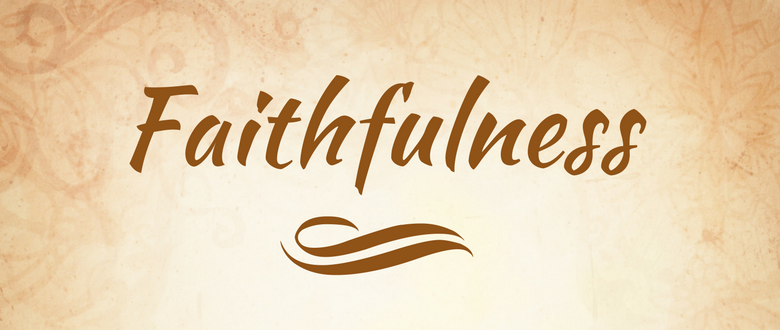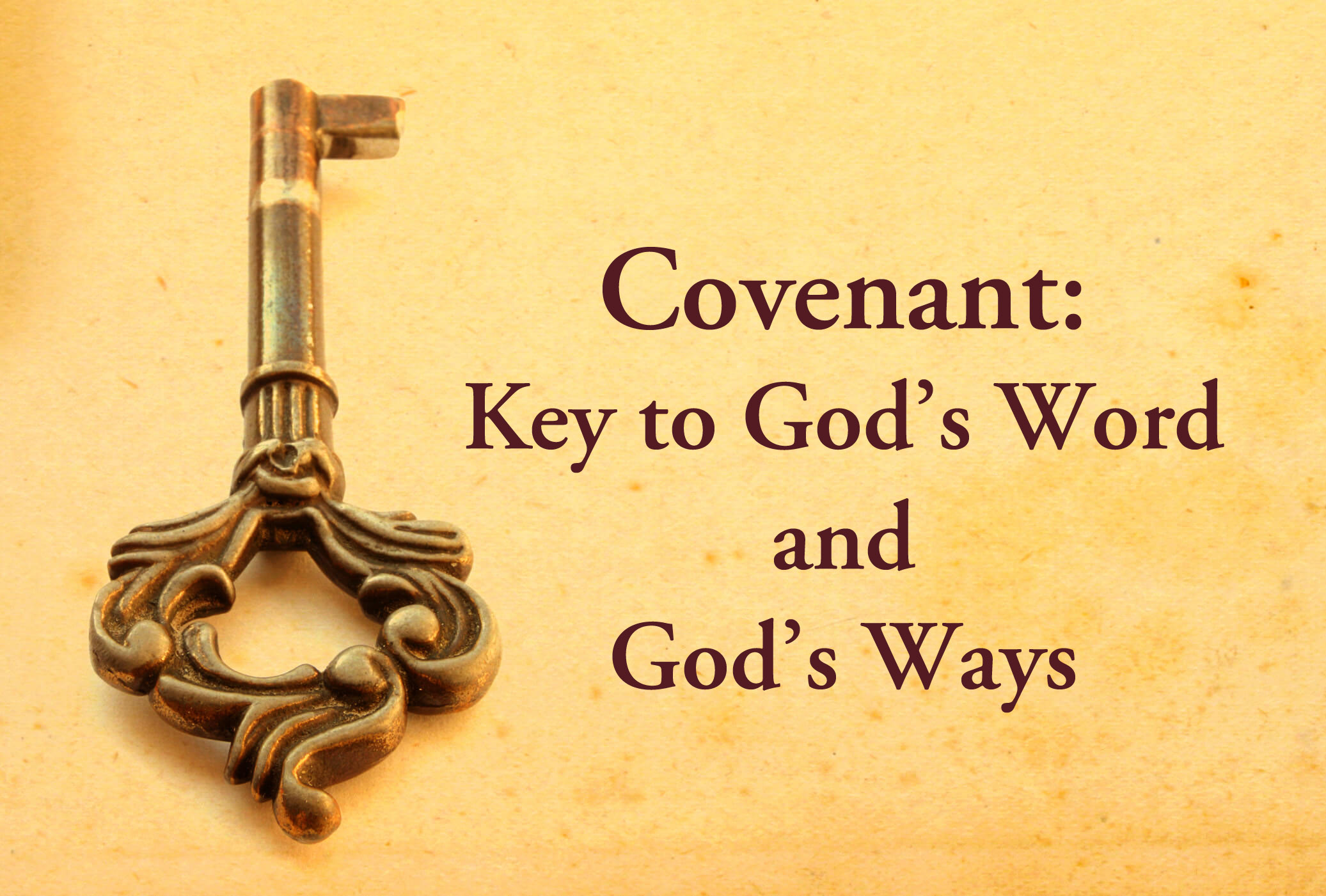By the time I had been a Christian five years, I had new questions.
Having read the Bible through three times, I had a pretty good overview of God’s history with man and His patterns of behavior. I wanted to know who this God is and, as we say, figure Him out. I thought I had a pretty good handle on what God loves, what He hates, and some sort of scale for His sin meter.
Still, there are mysteries I do not understand; things that are, as the psalmist wrote, “too wonderful for me.” I’m quite sure there will always be such things this side of heaven. Nonetheless, I began to be troubled by what looked like an uneven dispensation of God’s justice and favor in the Old Testament stories.
For instance, I wanted to know why God commanded His Israelite people to essentially wipe out certain tribes and take possession of their land. And at times God’s reaction to the sins and trespasses of His people seemed breathtakingly harsh, yet surprisingly merciful at other times.
I know God reserves the right to judge who and how He wishes. Even so, I couldn’t believe He was being capricious or just rolling the die in any given moment. After all, God states repeatedly in His Word that He loves justice. I always gave God the benefit of any doubt because I had faith that He was righteous and just to the core of His being. But these things bothered me still.

I don’t think God minds our questions. In fact, I think it pleases Him when we want to know and understand Him better, like children who grow up and can handle stuff that Dad couldn’t explain to them when they were six years old. Every time I have serious questions and a hunger to know more, I’ve asked the Spirit to give me understanding. He always helps me to discover what I need to know.
When I turned my nagging thoughts into a pointed request for understanding, the Spirit began to draw my attention to the word “covenant” in the Bible. In fact, He took me on a trip through the Bible focused entirely on that word. At the end of that journey, and after reading a few good books on the subject, I had my answers to these questions and much more.
In covenant I discovered a treasure and a great key to the entire body of Scripture, to the workings of God’s heart, and to God’s ways with mankind. Covenant explains the basis of God’s justice system and provides a consistent lens through which to view His words and ways.
Covenant changed my whole view of God and my self in relation to God. It would not be an exaggeration to say it put my faith on steroids, both faith in God and in my place in His heart and kingdom.
My husband and I have been teaching about Covenant since 1994. People who attend our seminars have a similar experience and wonder why they’ve never heard about it. Though a few new books have appeared on the subject in recent years, covenant is still not being taught to the Body of Christ at large. It should be, because Covenant is the key to God’s Word and God’s ways. What follows is an appetizer on the subject.
Blood Covenant Is Both A Ritual and A Relationship
Covenant is an ancient blood sacrifice ritual that initiated a permanent relationship based upon specific promises or vows. It was practiced by all known primitive cultures in the world, a discovery made by H. Clay Trumbull, a Bible and world history scholar.
Trumbull was amazed to find that the ancient practice of covenant rituals and laws were amazingly similar in spite of occurring on every continent in an age void of global communication. Trumbull found much correlation between these historical practices and the activities between God and men recorded in the Bible.
Trumbull’s conclusion, published in his book Blood Covenant, was that the concept and practice of covenant was initiated by the God who created all men. Covenant is a ritual and set of values that governed the relationships between God and men in Scripture.
All God’s relations with men are governed by a covenant
Even the first relationship with Adam in the Garden of Eden was a covenant, though the word “covenant” is not seen in Genesis. Once you learn the vocabulary of covenant, learn its values and recognize its activity, you see evidence of covenant truth everywhere.
It would be nice if the Bible had laid out the concept of Covenant in a nice, linear fashion, steps laid out and easy to understand. The fact that it does not is likely because those who wrote the Scriptures under the inspiration of the Spirit lived in a covenant-centric culture. For them to stop and explain what covenant is would have been like an American feeling the need to describe the entire game of football anytime they use the word “touchdown.”
Then there’s that thing where God loves treasure hunts:
“It is the glory of God to conceal a matter; to search out a matter is the glory of kings.” Proverbs 25:2 NIV
I’ve been taught by wise guys in the Body that God does not hide things from us so much as hide things for us. He loves it when we seek, for He delights to help us find. This has been my experience with the body of truth that makes up covenant. I’ve studied it over 20 years now, and nearly every time I read the Bible I find new nuggets and confirmation of its proper place in theology (the study of God).
Brief Summary of God’s Covenants With Man
After Adam broke the original covenant in Eden, the first mention of covenant is when God makes covenant with Noah following the cleansing of the earth of all sinful men. It was essentially the same covenant first entrusted to Adam.
God then made a covenant with Noah’s descendant Abraham, which promised a nation would come from him, and that through one in Abraham’s family line all men on earth would be blessed.
God made a covenant with Abraham’s descendant Jacob, whom he renamed “Israel.”
Israel became a great nation of 12 tribes, and when God rescued them from slavery under Pharaoh in Egypt, he made a covenant with the whole nation under Moses. The stipulations of this covenant are codified in what we know as the Ten Commandments, but known to the Hebrews as God’s covenant words. This covenant ruled over God’s people up and including the time of Jesus’ birth into the world.
From the tribe of Judah, God chose a king to rule over Israel who had a heart to love and honor God: David the shepherd. God made a covenant with David in which God promised his throne would last forever because one of his descendants would always rule.
Jesus was born of the virgin Mary, a descendant of David. Her husband, the man who lived as Jesus’ father on earth, was also descended from David.
When Jesus went to the cross, he declared his death and resurrection would initiate a new covenant. The book of Hebrews reveals this covenant is based upon God’s promise, announced in the days of Jeremiah the Prophet, that all men would someday know and be personally taught by God, that their sins would be forgiven.
From beginning to end, the Bible tells the story of God and man through their covenant history. Though the Hebrew word translated as “covenant” only appears 272 times, the language and activity of covenant is on practically every page, easily perceived by the trained mind. Which is why I believe covenant should be taught to Christians.
The practice and understanding of covenant has faded as society has become “more civilized.” The closest thing we have of modern covenant practice is marriage and the wedding ceremonies that initiate them. (The most recent blood covenant rituals in the continental U.S. were practiced by native American Indians. Like other ancient cultures, all among them honored covenant promises with their “blood brothers.” This is what set them up to trust in promises of the U.S. government, and also broke their hearts when the government betrayed them.)
Why should covenant matter to the modern Christian?
Because our salvation is a covenant — the New Covenant of Christ.
In his gospel Luke describes the last Passover meal Jesus presided over:
After the supper [Jesus] took the cup, saying, ‘This cup is the new covenant in my blood, which is poured out for you.'” Luke 22:20
Jesus himself identified his sacrifice for man’s salvation as a covenant. Once you understand all that lies behind the term, you will never be able to slide over that word again.

This covenant — our covenant with the Lord through Christ — is based upon God’s awesome promises recorded in Jeremiah Chapter 31, including this astounding one:
“They will all know me, from the least of them to the greatest.”
However you imagine God sees you, you are included in His promise!
This covenant promise is one of the anchors for my belief that if you belong to Christ, you are meant to truly know God in all the ways that matter most.
How Covenant Changes the Dynamic Of A Relationship
- Covenants change a relationship from casual to committed, such as in marriage. Covenant moves the relationship from the realm of changeable emotions, to a choice and commitment to love: “I promise to love you forever.” Covenant relationships were considered permanent — eternal — they could only be broken honorable by the death of one party. This concept is why our marriage vows always included the phrase, “Till death do us part.”
- In the eyes of God, two souls in a covenant become an indivisible ONE. To symbolize this the parties usually sealed their covenant by feeding a meal to each other, and saying something like “I’m in you, and you’re now in me, and we are one.” It was a visible symbol of an invisible reality. Think of the words Jesus uttered at His final Passover meal, pointing His disciples to what would happen beyond the cross after His resurrection from the dead:
“Because I live, you also will live. On that day you will realize that I am in my Father, and you are in me, and I am in you.” John 14:19-20
- Covenant parties called each other “friend.” In ancient times, “friend” never referred to a casual relationship. Think again of Jesus’ words in John 15: “I no longer call you servants…. I have called you friends.”
- A person in covenant with another lived by his chosen priority: to faithfully love, serve, protect and enrich the life of the covenant other, even at great personal cost.
If this doesn’t sound like news to you, consider this: God created the concept of covenant. He has always bound Himself to man by covenants, and He lives by them. He has sworn to be the faithful God of all who join with Him in covenant, and the enemy of all those who do not. In any case, God receives into His covenant family all those who seek Him, regardless of what enemy they once served.
The day I realized that God loves me tenaciously, deeply, and faithfully because of who HE is, not who I am or whether I deserve it, freedom came and rest came in my relationship with Him. Covenant has moved my entire focus from continually trying to earn God’s love and favor to trusting in it with my whole heart, and simply trying to love God and others the way He loves me.
There is much more Jesus did to signal that his goal was to bring believers into a covenant of love with Him and His Father.

How covenant changed my faith and life
- I saw how faithful God is, and why I could be secure in my salvation and His commitment to me, even if I messed up. Through understanding how God relates to us in covenant, my heart finally came to rest in His love.
- I learned a set of core relationship values, and saw that God holds himself accountable to these values. He never wavers from them. His indwelling Spirit instills these values in His children. Collectively He calls them “faithfulness.”
- When our marriage failed, the Holy Spirit took what we were learning about covenant relationship and held it before us daily. This, along with a new love for one another the Spirit birthed in us, gave us a brand new relationship. (That story will be shared in another article.)
- Covenant opened my eyes to the heart, motives and actions of God with man throughout Scripture. It revealed how God has been pursuing genuine relationship with His creation from the beginning. He has “put His money where His mouth is” by giving us EVERYTHING to make it possible: His Word, His Son, His very own spirit.
- Covenant explained why the Spirit was given to live with me.
- Covenant opened my eyes to God’s priorities. NOT laws, but personal character as displayed in relationship: justice, faithfulness, honor and love.
- Covenant answered questions like why God destroyed some tribes while protecting others (who are clearly imperfect and even sinful at times). Everything chronicled in Scripture reveals relational (covenant) history: whether one is inside or outside of a covenant with God; and if within a covenant, whether one is honoring that covenant faithfully.
- The Bible IS God’s covenant record. Everything connected with demonstrating His covenant faithfulness and ways is included
Furthermore, covenant provides context and connection for all the major themes in Scripture and the teaching of Jesus: the Kingdom, and my role in it; sin, righteousness, holiness and unfailing love. It effectively removed legalism with the relationship priorities of God’s heart.
Covenant explains how God can be the Almighty, omnipotent Creator God, AND the personal Lord of my life who listens to my prayers. It also reveals the basis of my authority to pray in a way that changes things on earth.
Finally, and most personally, the covenant values by which God is self-governed have taught me how to truly love God, family and friends.
Hesed: God’s Word for Covenant Love
The Old Testament, especially the Psalms, are laced with the words mercy, kindness, or lovingkindness, if you read the King James, Revised Standard, or New American Standard versions of the Bible.
Simple words. Nice words. To the average Western mind, words with relatively low impact. But in the world of God and Old Testament Scripture, these words are translated from one Hebrew word that embodies the entire concept of covenant love and faithfulness: hesed (or chesed).
The meaning of any given word actually abides in the heart of the person using the word or reading it. Words don’t give themselves meaning, people do. As a writer, I think a lot about which word to use, considering modern day usage and the current culture.
“Kindness” is nice. “Mercy” is a really good thing. “Lovingkindness” is a word we rarely use today. Actually, as a new Christian I was first given the New International Version of the Bible to read, and instead of these words, it always used the phrase “unfailing love.” This phrase impacted me deeply. “Unfailing love” said way more to me than “mercy.”
Please understand, I’m not asserting that “kindness, mercy and lovingkindness” are inaccurate translations of the word hesed. These words are actually very accurate as they appear in the KJV, New KJV, RSV and other versions. The problem is these words meant something entirely different to the people of Bible days — and to God himself, than they do to us today, in our modern Western culture. Like the word friend, kindness, mercy and lovingkindness all originally invoked the full concept of faithful covenant love.
These words simply don’t mean the same to us today. But reading the NIV version of the Bible as my primary translation for two decades totally established the covenant concept of unfailing love in my mind. Again, all of these words are translations of the Hebrew word hesed.
Hesed refers to covenant love — love chosen, sworn to, and ready to give all. Covenant love encompasses protecting you, befriending you, standing with you against your enemies, providing everything you need. It is pledged as an oath in blood to offer someone all of their strength, provision, favor and protection forever, and without fail, even at the cost of their own life.

When we teach on covenant, we offer a little cheat sheet that has every instance of the word hesed in Scripture. I have one taped inside the back cover of my Bible, so I can identify this word anywhere in the Old Testament. If you would like a free copy for your Bible study, you can download the PDF file here. Again, the goal is to understand what the Spirit means when HE uses this word in the Scripture.
The Body of Christ needs to be taught more about covenant.
Covenant is hidden in plain sight in scripture, but few churches teach it. Learning about it changed my whole concept of my relationship to God, and for the first time, caused me to totally rest in His love.
Covenant is a vast subject that will delight the scholarly student of Scripture. But even if you don’t delight in scholarship, you need to understand at least the language and activity of covenant, because when you do, it will make your Bible come alive in a whole new way. Recognizing covenant activity will:
- Give you insight about God’s motives and actions with men — why some have His favor and grace, while others do not.
- Give you a new security about God’s love and commitment to you.
- Cure you of living as a beggar trying to plead with God for what He freely promises his covenant children.
- Help you understand why your prayers are always heard in heaven, and why you have authority under God to change things by your prayers.
I am happy to say that a greater awareness and mention of covenant seems to be rising in the Body of Christ, but I’m on a mission to educate believers about Covenant and encourage its teaching. Therefore, it won’t surprise you to know that I plan to write a book on covenant to be used as a discipleship tool. Even though some new books have appeared on the subject, none I have seen offer the kind of personal application a Christian needs to bring home what the angels called “the full message of this new life” in Acts 5:20.
If you are impatient to learn more about covenant now, I can offer you several chapters about it in my latest book, They Will All Know Me.










Leave A Comment